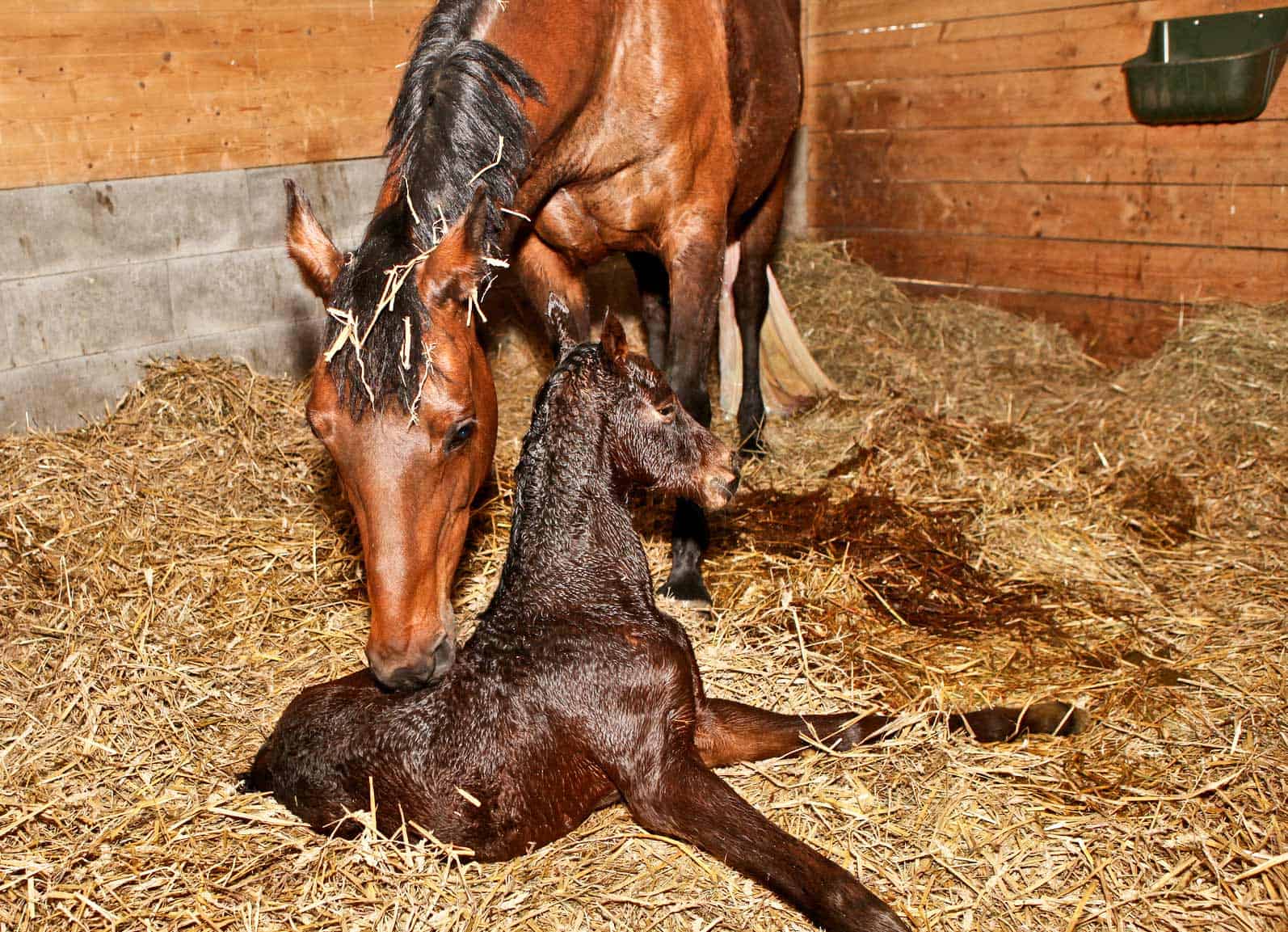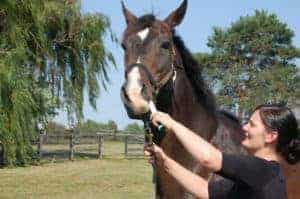Newborn Foals: What to Watch For

Neonatal foals are susceptible to a plethora of problems not seen in adult horses. Because seemingly mild conditions can quickly become critical or even fatal, it is important to have a veterinarian evaluate all newborn foals within the first 24 hours of life. However, an astute owner can help the veterinarian greatly by recognizing normal parturition (birth) and post-foaling behavior and reporting any deviations.
Once the mare breaks water, the foal should be born within 20 to 30 minutes. After that a good general rule of thumb to remember is “1, 2, and 3”: The foal should stand within one hour of being born, should nurse within two hours, and the mare should pass her placenta within three hours. The foal should begin passing meconium (his first manure) within one to two hours. Call your veterinarian about any deviations from these time frames.
Have the mare’s colostrum (first milk) evaluated for quality using a refractometer. Colostrum contains important antibodies that help protect the newborn foal from infection during the first several months of life via a process called passive transfer. Failure to nurse or ingesting poor-quality colostrum can result in failure of passive transfer. Affected foals are at risk for developing sepsis (a bacterial infection in the bloodstream), which can lead to serious problems such as meningitis, pneumonia, and infected joints. Your veterinarian might perform blood tests, including an IgG and complete blood count, during the new foal exam to ensure he received adequate antibodies from his dam and has a competent immune system. If the colostrum is of poor quality and your foal is less than 12 hours old, your veterinarian might be able to tube him with colostrum from a donor mare. After 12 hours he or she can administer commercially available hyperimmunized plasma to provide the necessary antibodies TheHorse.com is home to thousands of free articles about horse health care. In order to access some of our exclusive free content, you must be signed into TheHorse.com. Already have an account?Create a free account with TheHorse.com to view this content.
Start your free account today!
and continue reading.
Written by:
Multiple Authors
Related Articles
Stay on top of the most recent Horse Health news with















